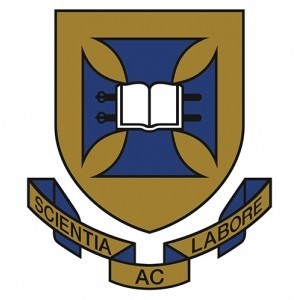Photos of university / #uow
The Doctor of Education (EdD) at the University of Wollongong is a prestigious and rigorous professional doctorate designed for experienced education practitioners, administrators, and researchers seeking to advance their expertise and leadership in education. This program offers a unique blend of scholarly inquiry, practical application, and leadership development, enabling graduates to make a meaningful impact within educational organizations, policy development, and community initiatives. The coursework and research components are carefully structured to foster critical thinking, innovative approaches, and evidence-based decision making in diverse educational contexts. Students engage with contemporary issues in education, such as curriculum innovation, educational equity, technology integration, and organizational change, preparing them to lead positive transformations in schools, universities, government agencies, and non-profit organizations. The doctoral journey emphasizes independent research, with opportunities to collaborate with peers and industry professionals, fostering a vibrant scholarly community. The program accommodates the busy schedules of education professionals through flexible delivery modes, including on-campus and online options. Graduates of the Doctor of Education at Wollongong are well-equipped to influence policy, improve practices, and contribute to the scholarly body of knowledge in education. The program upholds the University of Wollongong's commitment to excellence, innovation, and social impact, ensuring that graduates are prepared to meet the challenges of contemporary education and spearhead initiatives for sustainable development and lifelong learning. With experienced faculty, state-of-the-art facilities, and a supportive academic environment, the Doctor of Education offers an excellent pathway for those dedicated to advancing education through research and leadership at the highest levels.
- Thesis Full Time
- Advanced Research Methods in Education
- Research Proposal
- Advanced Research Seminar
Plus ONE from the list below
- Adult and Vocational Education or Higher Education
- The Early Years
- Educational Leadership
- Information and Communication Technology in Education & Training
- Literacy
- Physical & Health Education
- Special Education
- Teaching English to Speakers of Other Languages (TESOL)
- Research Methodology & Project Subjects (as required)
- A Master of Education with credit average (65% or better), or a Bachelor degree of at least four years' duration with Honours Class II Division 2 in an appropriate area. Candidates must also have completed 3 years' relevant professional experience.
- All applicants for research degrees must submit a written (preferably typed) proposal as part of their application. This proposal should:
- commence with a statement detailing any previous research or project experience you have undertaken, including if possible a copy of the abstract of such work;
- contain, in no more than one additional page, a clearly focussed research proposal for the study you would wish to undertake throughout your registration in the course; and
- conclude with a statement of your motivation for wanting to undertake the research course.
- Level of English is required to gain admission. IELTS Academic 6.5, TOEFL (Internet-based) - 88.
- All students are required to pay Overseas Student Health Cover for the duration of their student visa. OSHC provides for medical and hospital cover for students and their dependants.Our preferred OSHC provider is BUPA.
The Doctor of Education (EdD) program at the University of Wollongong offers a range of financing options to support prospective students in their academic pursuits. Domestic students may be eligible for various government grants and scholarship programs, which can significantly offset tuition costs. The Australian Government’s Higher Education Loan Program (HELP) provides eligible students with loans to cover tuition fees, which are repayable once the student’s income reaches a certain threshold, making postgraduate study more accessible. Additionally, the university offers its own scholarships and bursaries for doctoral students, recognizing academic excellence and potential contribution to the field of education. These scholarships may cover tuition fees partially or fully and sometimes include stipends or living allowances to support students during their studies. International students seeking to enroll in the Doctor of Education program are advised to explore scholarships specific to foreign students, including the university’s international scholarship schemes and external funding opportunities from government agencies and private foundations.
Students may also consider employer-sponsored funding opportunities if they are currently employed in educational organizations or institutions. Some employers provide financial support or study leave for employees undertaking postgraduate studies, recognizing the professional development benefits. Furthermore, students can explore external external funding sources, including educational grants from philanthropic organizations, research grants, and community grants. The university’s financial services office offers guidance and assistance in applying for available funding options, managing tuition payments, and understanding the financial obligations associated with the doctoral program. It is recommended that prospective students plan their finances early, considering application deadlines for scholarships and government grants, as well as inquiring about loan options and payment plans. Overall, the University of Wollongong strives to make doctoral education accessible by providing a variety of financial support mechanisms, enabling students to focus on their research and academic growth without undue financial burdens.
Student Services and Amenities Fee
The SAF is a compulsory charge, introduced following changes to Australian Government legislation, which funds improvements to facilities for students across a broad range of service areas, such as subsidised food outlets, childcare, student advocacy as well as sporting, recreational and cultural activities.
All international students enrolled at UOW will be invoiced twice yearly for the amount determined each year. The SAF 2016 fee is:
- Wollongong campus $290.00 per year
- Sydney campus $145.00 per year
- Wollongong Innovation Campus $145.00 per year
- Other campuses in Australia $145.00 per year
Living Expenses
In addition to tuition fees, a single student living in Wollongong will require $10,000 to $12,000 a year – depending on lifestyle – to cover accommodation, food, transport and other expenses including text books and study materials and entertainment.



